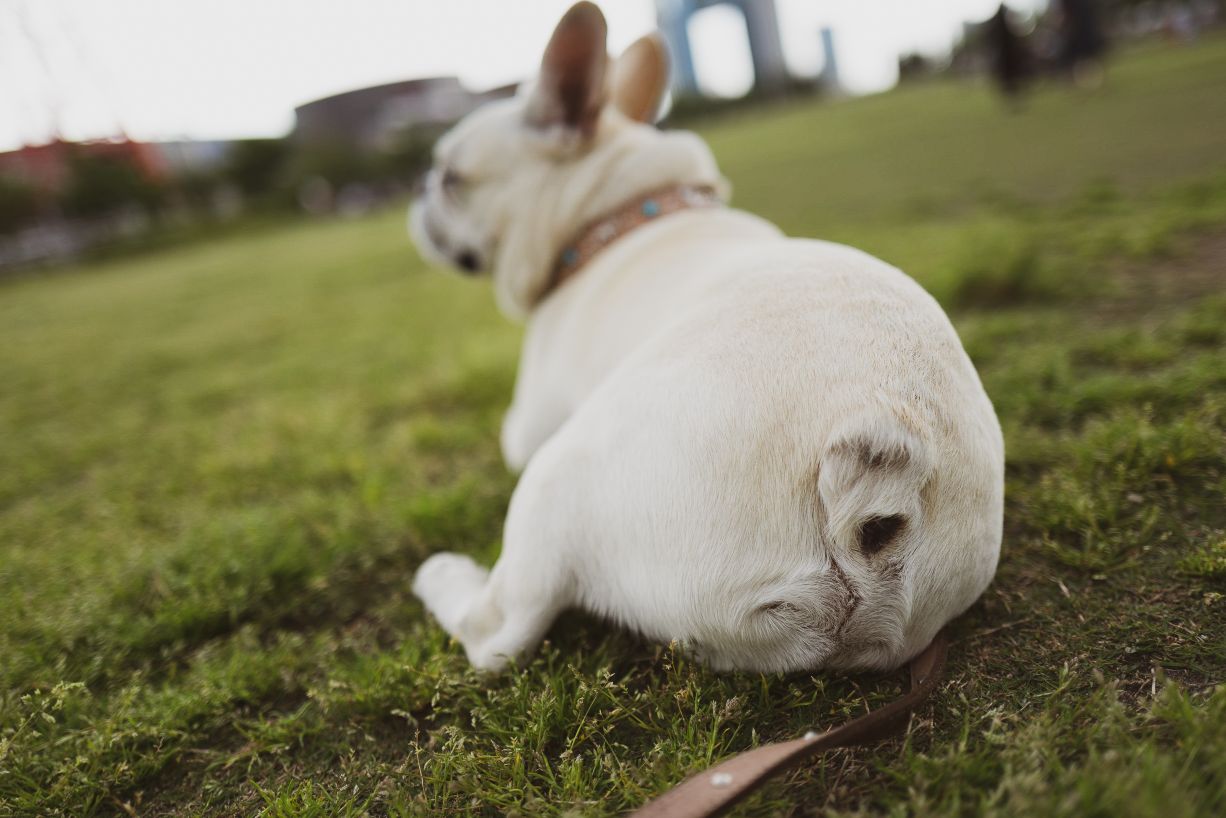What’s That Fishy Smell? Anal Glands in Dogs

Anal glands are a part of every dog’s anatomy and can produce odors from time to time. If you have noticed a fishy smell coming from your pup, chances are it is the anal glands. The team at Harpeth Hills Animal Hospital is here to fill you in on why your dog might be smelling kind of fishy all of a sudden:
Anal Glands…Yuck
It may seem like a gross conversation for you, but when it comes to your pet’s overall health, it is important to understand anal glands and why they sometimes smell so foul. Anal glands are located on either side of the entrance to the anus. These sacs are about the size of a pea and contain an oily substance that gives off the odor you might be smelling. This allows the animal to produce a distinct odor that cautions other animals and wildlife from roaming into their terf.
Most dogs have no issue with these glands because they are expressed through normal activity. There are those dogs who have issues, though, like small breeds or those with mobility issues.
Diseases of the Anal Sac
Anal sac diseases generally affect small and toy breeds, although large breeds can have similar issues. The “booty scoot” when your dog drags their hind quarters on the ground is an indicator that the anal sacs need to be expressed. If your dog repeatedly drags their bottom on the ground and smells pretty fishy, schedule an appointment for a wellness exam to make sure there is not a bigger issue.
Impactions—Impaction is when the fluids of the anal sacs are not expressed and form into a thick paste or solid form. Unless treated, this will cause pain and discomfort for your dog. Obese dogs are more at risk of devloping anal impactions.
Infections and abscesses—These issues are a result of when anal glands do not get realeased, which allows bacteria to build up and form abscesses. Your pet will be in tremendous pain if they experience abscesses of the anal sac, which can appear quite swollen and inflammed.
Anal sac tumours—Tumors block your dog’s ability to release the oily fuild from the anal glands. These tumors need to be biopsied to ensure they are not malignant.
Symptoms of anal sac disease include:
- Fishy smell
- Scooting rear on ground
- Licking and biting at anus
- Difficulting defecating
- Yelping and whining when defecating (due to pain)
- Blood or pus in the stool
If you think your dog might be having trouble with anal glands or would like to schedule an appointment, please call (615) 646‑7387.

